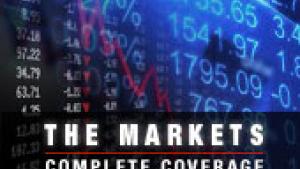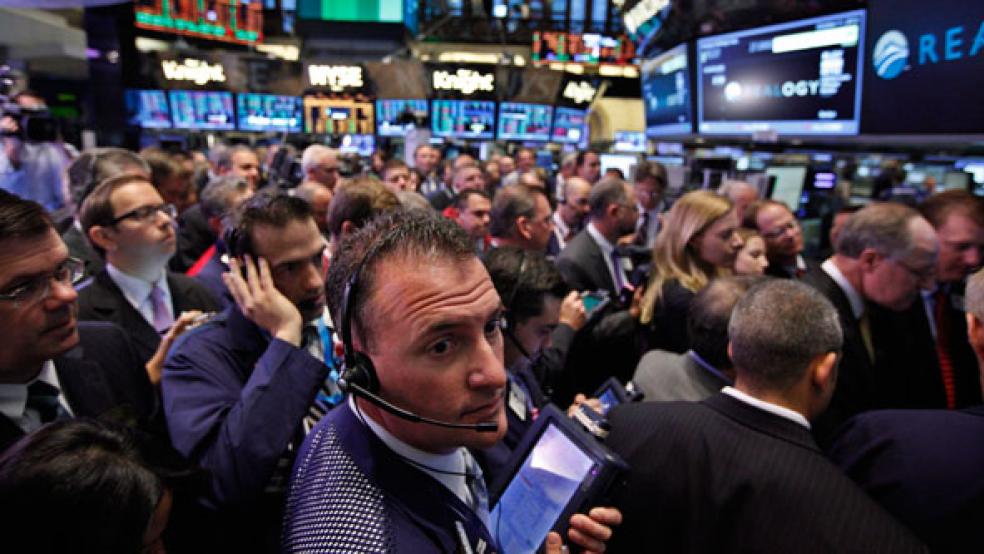 Even before Thanksgiving's leftover turkey is gone, investors will be shifting their focus to December, typically a jolly time for stocks.
Even before Thanksgiving's leftover turkey is gone, investors will be shifting their focus to December, typically a jolly time for stocks.
Given the stock market's 20 percent plus year-to-date gains, history suggests an 80 percent chance for a higher market in December, with an average 2.3 percent gain for the S&P 500, according to J.P. Morgan chief U.S. equity strategist Thomas Lee. Friday is the final trading day of the month, and stocks have logged solid gains for November thus far: 3.6 percent for the Dow; 2.9 percent for the S&P; 3.2 percent for the Nasdaq; and 3.7 percent for the Russell 2000.
But ahead of December's expected gains, there are three key things markets will be watching: the November employment report, the budget proposal and the Federal Reserve's policy meeting.
Related: High Anxiety As Americans Grapple with Low Wages
The November employment report, due on Dec. 6, could determine the outcome of what is arguably the most important event of the month for markets: the Fed's Dec. 17 and 18 policy meeting.
Congress and the federal budget will be also be back in focus, with budget conferees expected to provide a budget proposal on Dec. 13; the continuing resolution to fund the government runs out on Jan. 15.
"Seasonality is very strong, and it's hard to argue against the momentum coming out of the September Fed meeting. Now you run into the December Fed meeting," said Dan Greenhaus, chief global strategist at BTIG. "They could very easily decide to do something then. I think people in general have discounted to too large a degree no movement at the December meeting."
The Fed surprised markets in September when it refrained from tapering back its $85-billion-a-month bond-buying program, a decision that emboldened stock market bulls and helped take the market to record highs.
The Fed put off reducing the program in part because it saw fiscal risks with the brewing budget battle that ultimately resulted in the government shutdown in October. Fed officials, including Fed chair nominee Janet Yellen, have made clear the Fed will base its decision on the strength and sustainability of the economy and employment.
When the Fed didn't act in September and the government was shut down in October, market expectations shifted to a tapering announcement months away, with many focused on March, the first meeting chaired by Yellen. But the stronger-than-expected October jobs report changed that view as did the minutes of the Fed's October meeting, and now there are some who believe the Fed could act as soon as the December meeting.
There were 204,000 nonfarm payrolls added in October, and 60,000 additional jobs in August and September. "We're looking for more of the same [in November]. A number probably just a little under 200,000," said J.P. Morgan chief U.S. economist Michael Feroli. As for the Fed, "it will be a close call. I think it could probably depend on some other things, like durables and retail sales."
Traders expect the market to be volatile around that jobs number, since that is when they will seriously be gauging the Fed's next move.
"It would be a surprise if all of sudden you do get a strong jobs number, and the Fed surprisingly decides, 'we're going to do a token tapering' and maybe the market would be just caught flat-footed," said Mark Luschini, chief market strategist at Janney Montgomery. "Those who say that any tapering is factored in to the market, I don't necessarily agree with."
Stock traders are also keeping an eye on yields, with the 10-year one of their most closely watched metrics. It was yielding 2.74 percent Wednesday. Treasury yields would be expected to move higher if the jobs report is better than expected.
"I think the larger story is not whether or not there will be a negative reaction to a shift in Fed position because the answer is yes. That is a given but it doesn't matter. What matters is whether it shifts the ultimate path of equities," Greenhaus said. A higher 10-year yield is not a problem for stocks, until it gets to about 3.5 percent, Greenhaus added.
November's retail sales data, due on Dec. 12, will also be important as it will be watched by the Fed and it's also a key to the strength of the holiday shopping season. The National Retail Federation expects November and December holiday sales gains of 3.9 percent. "It'll be telling as to whether the consumer and this deleveraging process…is going to lead to sustained or improved spending prospects," Luschini said.
While the market paid little heed to Washington's budget battling in October, Luschini said there is a slight risk it could unsettle markets in the next go round.
Congress is due to return by Dec. 9, and their willingness to cooperate could be important. "That could be telling," he said. "Are we going to see the prospects of a replay of what we had just two months ago?"
Luschini and others say the market is ready for a pullback but the seasonal tide could push it higher in December regardless. The Dow and Russell are at all-time highs, the S&P 500 is close to its recent high, while Nasdaq reached a fresh 13-year high.
"That (seasonality) is tempered by the fact that the market is flirting with all-time highs," he said, adding that the market could continue to rise unless the Fed or Congress deliver a surprise.
This article originally appeared in CNBC.
Read more at CNBC:
Stocks could see new volatility in 2014
The tech wreck's huge toll on fund investors
There's a long way to go before Fed raises rates




